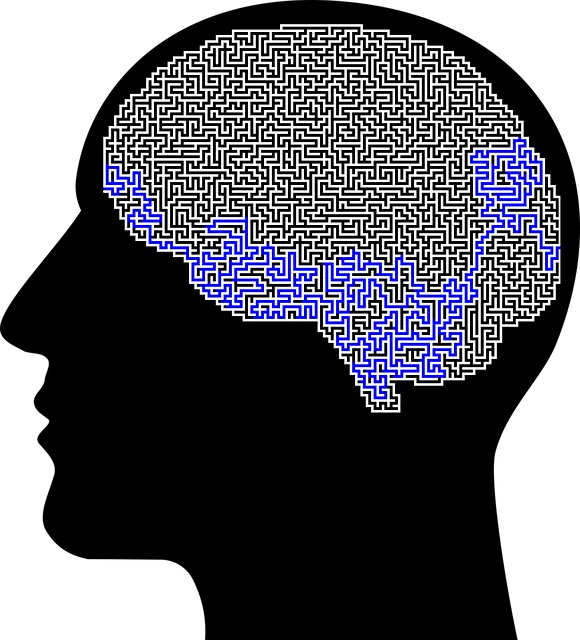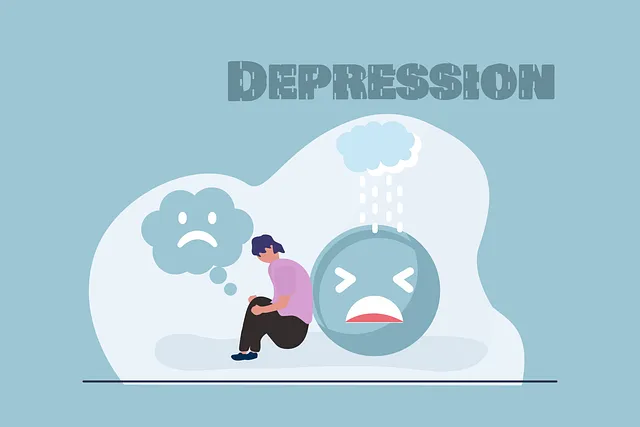Community outreach programs, like those provided by organizations such as Kaiser, play a vital role in addressing social issues and enhancing the well-being of underserved populations, particularly in neighborhoods like Englewood. By offering accessible mental health services, including stigma reduction, tailored emotional well-being promotion, and trauma support, these initiatives create inclusive environments encouraging individuals to seek help for their mental health concerns. Kaiser's involvement in Englewood exemplifies this approach, effectively addressing mental health issues and improving community outcomes. Evaluating the impact of such programs through data collection is crucial for understanding their success and identifying areas for improvement in providing comprehensive mental healthcare in underserved communities.
Community outreach programs play a vital role in bridging healthcare gaps, especially in underserved areas like Englewood. This article delves into the implementation of such initiatives, highlighting their definition and goals. We explore mental health services as a crucial component, focusing on Kaiser’s innovative approach to enhancing healthcare accessibility through its case study. Additionally, we analyze effective outreach strategies and measure the impact of these programs, including how they address the specific needs of Englewood residents, with a particular emphasis on Kaiser’s provision of mental health services in this community.
- Understanding Community Outreach Programs: Definition and Goals
- Mental Health Services as a Core Component of Community Engagement
- Kaiser's Role in Healthcare Accessibility: A Case Study
- Implementing Effective Outreach Strategies in Englewood
- Measuring Success: Evaluation and Impact of Community Outreach Programs
Understanding Community Outreach Programs: Definition and Goals

Community outreach programs play a pivotal role in addressing various social issues and enhancing the overall well-being of underserved populations. At their core, these initiatives aim to bridge the gap between healthcare services and communities that often lack access to essential resources, such as mental health support. Organizations like Kaiser, for instance, recognize the significance of engaging with neighborhoods like Englewood to offer much-needed services, including mental health care.
By implementing community outreach programs, organizations can facilitate the reduction of mental illness stigma, promote emotional well-being through tailored techniques, and provide trauma support services accessible to all residents. These efforts are vital in fostering inclusive environments where individuals feel comfortable seeking help for their mental health concerns, ultimately leading to improved community health outcomes.
Mental Health Services as a Core Component of Community Engagement

Community outreach programs strive to connect with every member of a neighborhood, and mental health services play a pivotal role in this engagement. Organizations like Kaiser can significantly contribute to the well-being of communities such as Englewood by offering accessible Mental Health Services. This includes initiatives that foster Mental Health Awareness and Emotional Regulation, addressing issues that often go unnoticed or unaddressed.
By integrating programs focused on enhancing Emotional Intelligence, these outreach efforts can create a supportive environment where residents feel empowered to discuss and manage their mental health. Kaiser’s presence in Englewood could be transformative, ensuring that individuals have the resources they need to navigate and improve their emotional landscapes, ultimately strengthening the overall resilience of the community.
Kaiser's Role in Healthcare Accessibility: A Case Study

In the diverse community of Englewood, where barriers to healthcare accessibility are prominent, Kaiser has emerged as a beacon of hope, playing a pivotal role in addressing mental health concerns. This case study highlights their comprehensive approach to improving healthcare availability for underserved populations. By offering a wide range of services, including specialized mental health programs, Kaiser aims to combat the prevalent mental illness stigma and burnout issues within the community. Their strategic initiatives focus on efficient communication strategies, ensuring that residents are informed about available resources.
Through dedicated outreach programs, Kaiser connects with individuals who might otherwise face challenges in accessing quality care. These programs not only promote awareness but also encourage open dialogue about mental health, fostering an environment where support is more readily available. The organization’s commitment to reducing the stigma surrounding mental illness is evident in their community engagement tactics, which include educational workshops and peer support groups. This holistic approach ensures that residents of Englewood have increased opportunities to seek help for their mental well-being, ultimately leading to a healthier and more resilient community.
Implementing Effective Outreach Strategies in Englewood

Englewood, a vibrant community with diverse populations, requires tailored outreach strategies to address its unique needs, especially regarding mental healthcare access. Kaiser, recognizing this gap, has initiated programs to extend its services into this neighborhood. One effective approach is integrating Self-Care Practices that cater to the specific cultural and social dynamics of Englewood. By offering workshops and support groups, residents can gain essential skills for managing stress and improving overall well-being.
Furthermore, cultural sensitivity in mental healthcare practice is paramount. Kaiser’s initiatives include training staff in Cultural Skills Training to ensure a respectful and inclusive environment. This involves understanding the community’s history, values, and beliefs to deliver services that resonate with residents. Such personalized outreach not only increases access but also fosters trust, encouraging individuals to seek help for their mental health concerns, including those who may be hesitant due to previous negative experiences or cultural barriers.
Measuring Success: Evaluation and Impact of Community Outreach Programs

Evaluating the success of community outreach programs is a vital step in understanding their impact and identifying areas for improvement. Measuring the effectiveness of initiatives aimed at enhancing mental wellness, such as those offered by organizations like Kaiser in Englewood, involves a comprehensive approach. By assessing both qualitative and quantitative data, program organizers can gain valuable insights into the reach and benefits of their services.
One effective method is to track participant engagement and satisfaction through surveys and feedback forms. These tools help gauge the positive outcomes, such as reduced anxiety and improved mindfulness meditation practices, among community members. Additionally, measuring the long-term impact on mental health indicators in the target area can showcase the program’s sustainability and overall success in fostering a healthier environment.
Community outreach programs, such as those highlighted in this article, play a pivotal role in enhancing healthcare accessibility. By integrating mental health services, as demonstrated by Kaiser’s successful case study in Englewood, these initiatives significantly impact community well-being. Implementing effective strategies tailored to local needs ensures that vulnerable populations receive the support they deserve. Evaluating and measuring the success of such programs is essential to understanding their impact and refining future outreach efforts, ultimately fostering healthier communities. Moreover, recognizing the importance of mental health as a core component of community engagement is crucial for creating indelible, positive changes.






